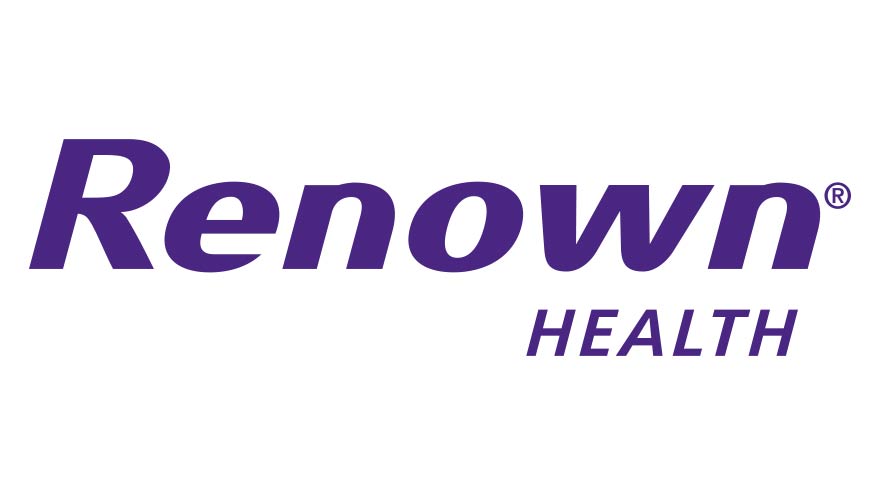Where There is Smoke; There May Be Headaches, Nausea and Coughing
September 10, 2024

Renown Urgent Care and Emergency Room teams encourage you to stay safe. Urgent Care is available seven days a week at 10 locations across northern Nevada and Emergency Rooms 24/7.
Northern Nevada Public Health’s (NNPH) Air Quality Management Division (AQMD) has issued an Air Quality Advisory due to the Davis Fire burning in southern Washoe County. Air monitors for the most region hit the “Moderate” range Saturday night, which is 151-200 on the Air Quality Index (AQI). That means some members of the public may experience health effects. All residents in impacted areas are encouraged to regularly monitor the air quality nearest them at www.airnow.gov and limit outdoor exposure when they see or smell smoke.
Exposure to elevated PM2.5 (fine particulate matter in smoke) concentrations can result in eye and throat irritation, headaches, nausea, shortness of breath, congestion, coughing, impaired lung function and chest pain, especially among sensitive individuals such as the elderly, children, people with asthma, people with heart or lung conditions, pregnant women and anyone who is exercising or working hard outdoors.
- People with asthma or breathing conditions like Chronic Obstructive Pulmonary Disease.
- People who have heart disease or high blood pressure.
- Children and older adults.
- People doing extended or heavy physical activity like playing sports or working outdoors.
“Everyone should take precautions when the air quality is unhealthy. Air pollution can aggravate heart and cardiovascular disease as well as lung diseases like asthma and COPD. When the air quality is unhealthy, people with these conditions may experience symptoms like chest pain, shortness of breath, wheezing, coughing, or fatigue. If you are experiencing any of these symptoms, use your inhalers as directed and contact your health care provider,” says Ms. Whitlock. “If you do not have a health care provider, we are happy to see you. Renown Urgent Care offices are on almost every corner, with providers ready to see you.” She advises to take it easy and listen to your body, and:
- Limit, change, or postpone your physical activity level.
- Drink plenty of water.
- Stay away from local sources of air pollution like busy roads and wood fires. Use a damp cloth or mask to reduce smoke inhalation if you must go outside.
- If you have asthma or other breathing conditions like COPD keep your relief/rescue inhaler with you.
- People with asthma should review and follow guidance in their written asthma action plan. Make an appointment to see your health provider to be sure you have an asthma action plan.
When to Visit the Emergency Department
Bret Frey, MD, President, Western Emergency Physicians and Renown Health Emergency Departments, says, “Seek emergency care if you or someone you know is experiencing any of the following symptoms due to smoke exposure:
- Severe shortness of breath or difficulty breathing-If breathing becomes labored or painful, you cannot catch your breath even after resting, this may be a sign of serious respiratory distress.
- Chest pain or tightness- Any discomfort in the chest, particularly if it is associated with breathing, should be evaluated immediately.
- Persistent coughing or wheezing- If a cough doesn’t improve or worsens, or if you develop wheezing, you should seek emergency medical attention.
- Confusion, dizziness or fainting- These can be signs of oxygen deprivation, and immediate care is critical.
- Bluish lips or face- A clear indicator that oxygen levels are dangerously low and emergency medical treatment is needed.
- Burns or smoke inhalation from a fire- Individuals who have been exposed to fire, or smoke in a confined space, should be evaluated for potential lung damage and other complications.
“Even just one hour of smoke exposure can affect our lungs and hearts, and these consequences can reach people far beyond the direct area endangered by the fire. Children, older adults, pregnant women, people with preexisting cardiopulmonary disease, communities of color, economically disadvantaged communities, and people with preexisting chronic health conditions like asthma, diabetes, and obesity are all especially vulnerable to the air pollution that wildfires cause," says Dr. Frey.
Renown Urgent Care provides treatment for a wide range of minor injuries, illnesses and medical concerns that are urgent but not life-threatening, that require same-day medical attention and are more affordable than the emergency room at 10 convenient sites, including Reno, Sparks, Carson City, USA Parkway, Fallon and Fernley. You can walk-in or book ahead online at www.renown.org.
Emergency Care
If you have an emergency, call 911. The Renown Regional Emergency Room and Renown Children’s Emergency Room, located at 1155 Mill St, Reno, NV, are equipped to handle a wide range of emergencies, and Regional is the only Level II Trauma Center between Sacramento and Salt Lake City. Renown South Meadows Emergency Room is located at 10101 Double R Blvd, Reno, NV 89521. Wait times for triage are generally less than 15 minutes and can be viewed here. The dedicated team is ready to provide immediate attention with empathy and professionalism 24 hours a day, 365 days a year.
About Renown Health
Renown Health is the region’s largest, locally governed, not-for-profit integrated health care network serving Nevada, Lake Tahoe, and northeast California. With a diverse workforce of more than 7,500 employees, Renown has fostered a longstanding culture of excellence, determination, and innovation. The organization comprises a trauma center, two acute care hospitals, a children’s hospital, a rehabilitation hospital, a medical group and urgent care network, and the locally owned not-for-profit insurance company, Hometown Health. For more information, visit renown.org.